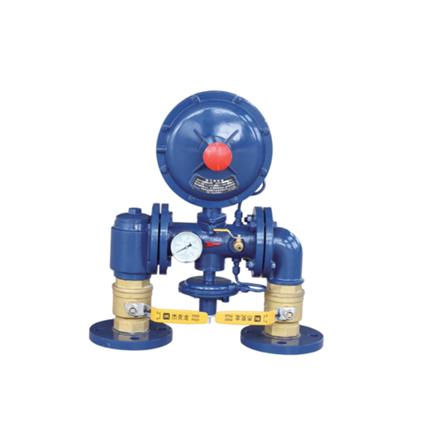
Sep . 28, 2024 23:43
Back to list
Optimizing Pressure Control for Enhanced Performance and Safety in Systems
Understanding the Concept of Pressure Regulation A Comprehensive Overview
Pressure regulation plays a crucial role in various engineering applications, from household water systems to industrial processes. The concept involves controlling the pressure of fluids—liquids or gases—to ensure optimal performance, safety, and efficiency. This article delves into the importance of pressure regulation, its mechanisms, and its applications across different sectors.
The Importance of Pressure Regulation
In many systems, maintaining appropriate pressure levels is vital for functionality. For instance, in water supply systems, excessive pressure can lead to pipe bursts, while inadequate pressure can result in insufficient water flow. Similarly, in gas pipelines, pressure regulation is essential to prevent accidents and ensure that gas is delivered safely and reliably.
In industrial settings, pressure regulation is integral to processes such as chemical manufacturing, food production, and pharmaceuticals. These industries often require precise pressure levels to avoid contamination, ensure product quality, and maintain safety standards. Hence, the consequences of failing to regulate pressure can be significant, leading to costly repairs, legal issues, and safety hazards.
Mechanisms of Pressure Regulation
Several technologies are employed to regulate pressure, with regulators being the most common devices. A pressure regulator automatically adjusts the pressure of a fluid to a predetermined level. It operates based on the principle of differential pressure—monitoring the pressure downstream of the regulator and responding to any fluctuations.
.
Pilot-operated regulators, on the other hand, have a more complex setup, using a smaller pilot regulator to control a larger main valve. This arrangement provides greater sensitivity and accuracy, making it ideal for high-flow applications.
مزلقة تنظيم الضغط

Applications in Various Sectors
1. Residential Systems In home plumbing, pressure regulators are often installed to protect appliances and fixtures from high water pressure, which can lead to leaks and damage over time.
2. Industrial Processes Manufacturing plants utilize pressure regulation to control the flow of gases and liquids during production processes. This is crucial in ensuring consistent product quality and minimizing waste.
3. Medical Equipment Pressure regulation is vital in medical devices, such as ventilators and anesthetic machines, where precise pressure control is necessary for patient safety and effective treatment.
4. Automotive Industry In cars, fuel pressure regulators help maintain the correct fuel pressure in the fuel injection system, ensuring optimal engine performance and efficiency.
5. Aerospace Applications In aviation, pressure regulation is crucial for the safe operation of aircraft systems, including cabin pressurization and fuel systems.
Conclusion
Efficient pressure regulation is an essential component of many systems that rely on the controlled flow of fluids. From residential plumbing to advanced industrial processes, the need for reliable pressure management cannot be overstated. By employing various pressure regulation technologies, businesses and homeowners can ensure the safety, efficiency, and longevity of their systems. As engineering advancements continue, we can expect even more innovative solutions to enhance pressure regulation across different sectors, leading to improved safety and performance outcomes. Understanding these mechanisms and their applications is crucial for anyone involved in the design, maintenance, or regulation of fluid systems.
Latest news
-
Safety Valve Spring-Loaded Design Overpressure ProtectionNewsJul.25,2025
-
Precision Voltage Regulator AC5 Accuracy Grade PerformanceNewsJul.25,2025
-
Natural Gas Pressure Regulating Skid Industrial Pipeline ApplicationsNewsJul.25,2025
-
Natural Gas Filter Stainless Steel Mesh Element DesignNewsJul.25,2025
-
Gas Pressure Regulator Valve Direct-Acting Spring-Loaded DesignNewsJul.25,2025
-
Decompression Equipment Multi-Stage Heat Exchange System DesignNewsJul.25,2025

